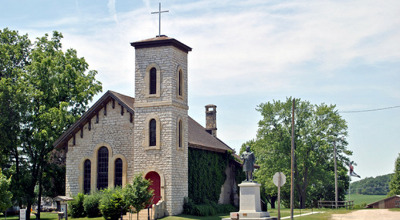
Remember the Pepsi Challenge? It was a marketing campaign in the 1980s where people would be offered two unmarked cups. One contained Coke, and the other contained Pepsi. After taking a sip of both, the participants would be asked to reveal which one they liked the best.
Apparently, more people picked Pepsi. At least, that’s what their ads led us to believe. (Incidentally, Malcolm Gladwell has a great chapter in his book Blink that explains the flaws of this taste test.)
Comparing two different brands of soft drinks makes sense to us. But what if someone ran the same test, this time using the same brand? Let’s say the only difference would be the size of the cup. Wouldn’t you think that was a strange comparison? Does anybody really think a 24-ounce cup of Pepsi tastes better than an 16-ounce cup? No matter the size, the contents are the same—and that’s what matters!
I think we would all agree that testing by size would be ridiculous and illogical.
So why, then, do we often measure the effectiveness of a church by its size? A church of 50 and a church of 5,000 are both full of the same thing: followers of Christ!
Don’t get me wrong; not every small church is healthy, but neither is every big church. The fact of the matter is that the majority of churches around the world are what most would consider “small.”
I’m afraid some have the mistaken impression that “small” means a lack of mission or purpose. Nothing, however, could be further from the truth. Some of the most passionate missional churches have relatively small congregations. Make no mistake about it, “small” does not mean inferior.
There are a number of reasons why a church may be small:
1. The community may be small to begin with.
2. The congregation may be transitory.
3. The congregation may be sending out people to plant churches.
Stop and think. Is there a big difference between having a few large churches as opposed to a lot of small churches? Of course there isn’t. If anything, a larger number of small churches may allow more people to exercise their gifts of leadership. When you think about it, a large army of small churches could be the sleeping giant that strategically infiltrates the world.
Small churches have some great advantages:
1. Many people feel more comfortable and are more prone to open up in a smaller setting.
2. Small churches have less logistical distractions.
3. Pastors can spend more time investing in each member.
Maybe that’s why it should be no surprise when we hear a pastor or missionary reminisce about growing up in a small church. For that matter, we would do well to remember that every large church started out as a small church!
Please don’t misunderstand. I am not against big churches! Many megachurch pastors do a great job making sure their congregations enjoy the same level of fellowship and mission as a small church.
All I’m saying is that it would be a mistake to write off churches because they are small. So I want to go on the record proclaiming my love for small churches.
Don’t worry if your church isn’t a “three liter” congregation. After all, God does big things in small churches!
After seven years of pastoring, Scott Attebery was selected as the executive director of DiscipleGuide Church Reources, a department of the Baptist Missionary Association of America. He holds a Bachelor of Arts in Bible from Central Baptist College, a Master of Divinity from the BMA Theological Seminary and is a candidate for a Doctorate of Ministry from Gordon Conwell Theological Seminary. You can read his blog at ScottAttebery.com.
For the original article, visit pastors.com.
Get Spirit-filled content delivered right to your inbox! Click here to subscribe to our newsletter.
Dr. Steve Greene is now sharing stories, teachings, and conversations with guests who lead with love on Love Leads, a new podcast. Listen now.
Dr. Mark Rutland's
National Institute of Christian Leadership (NICL)
The NICL is one of the top leadership training programs in the U.S. taught by Dr. Mark Rutland. If you're the type of leader that likes to have total control over every aspect of your ministry and your future success, the NICL is right for you!
FREE NICL MINI-COURSE - Enroll for 3-hours of training from Dr. Rutland's full leadership course. Experience the NICL and decide if this training is right for you and your team.
Do you feel stuck? Do you feel like you’re not growing? Do you need help from an expert in leadership? There is no other leadership training like the NICL. Gain the leadership skills and confidence you need to lead your church, business or ministry. Get ready to accomplish all of your God-given dreams. CLICK HERE for NICL training dates and details.The NICL Online is an option for any leader with time or schedule constraints. It's also for leaders who want to expedite their training to receive advanced standing for Master Level credit hours. Work through Dr. Rutland's full training from the comfort of your home or ministry at your pace. Learn more about NICL Online. Learn more about NICL Online.


